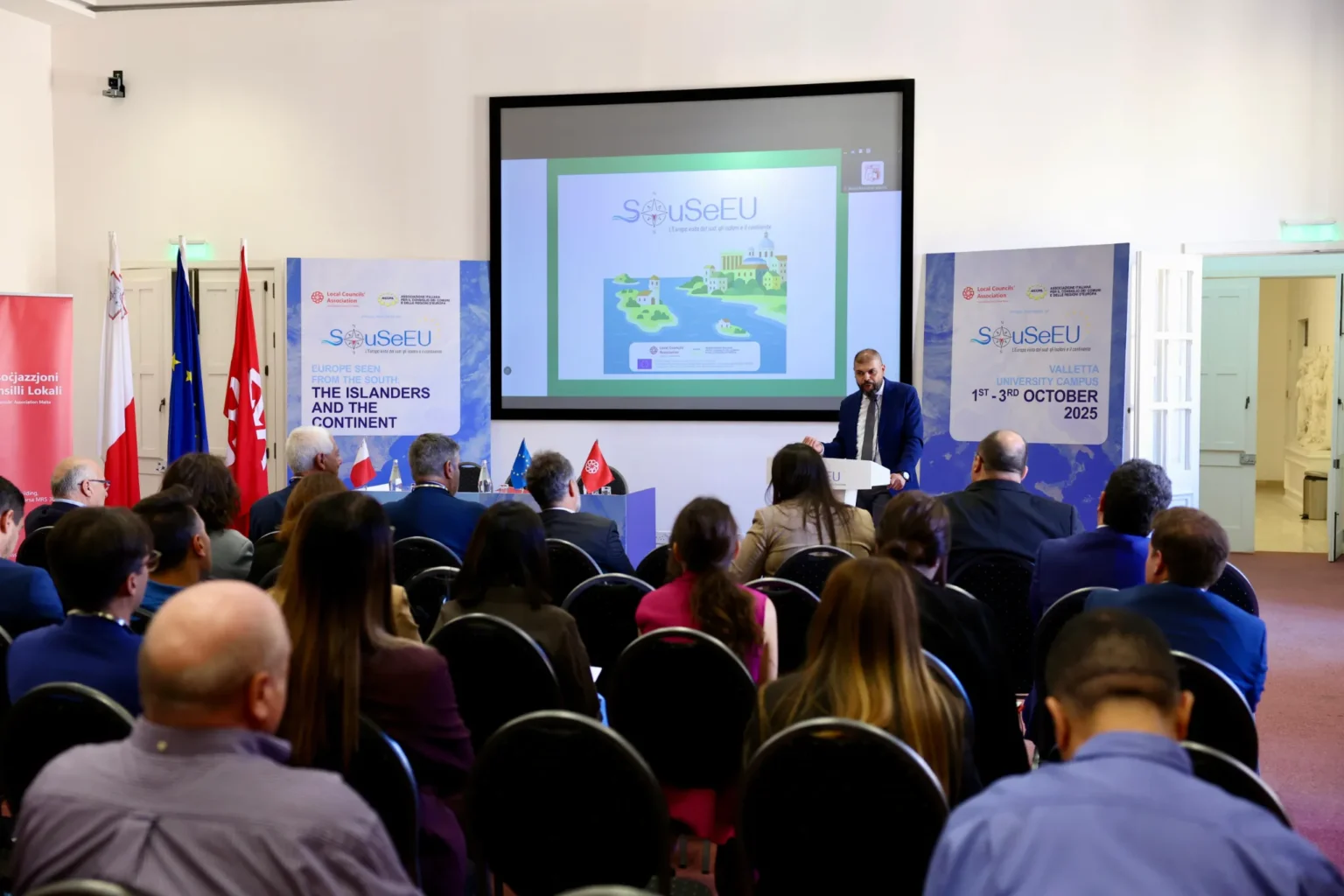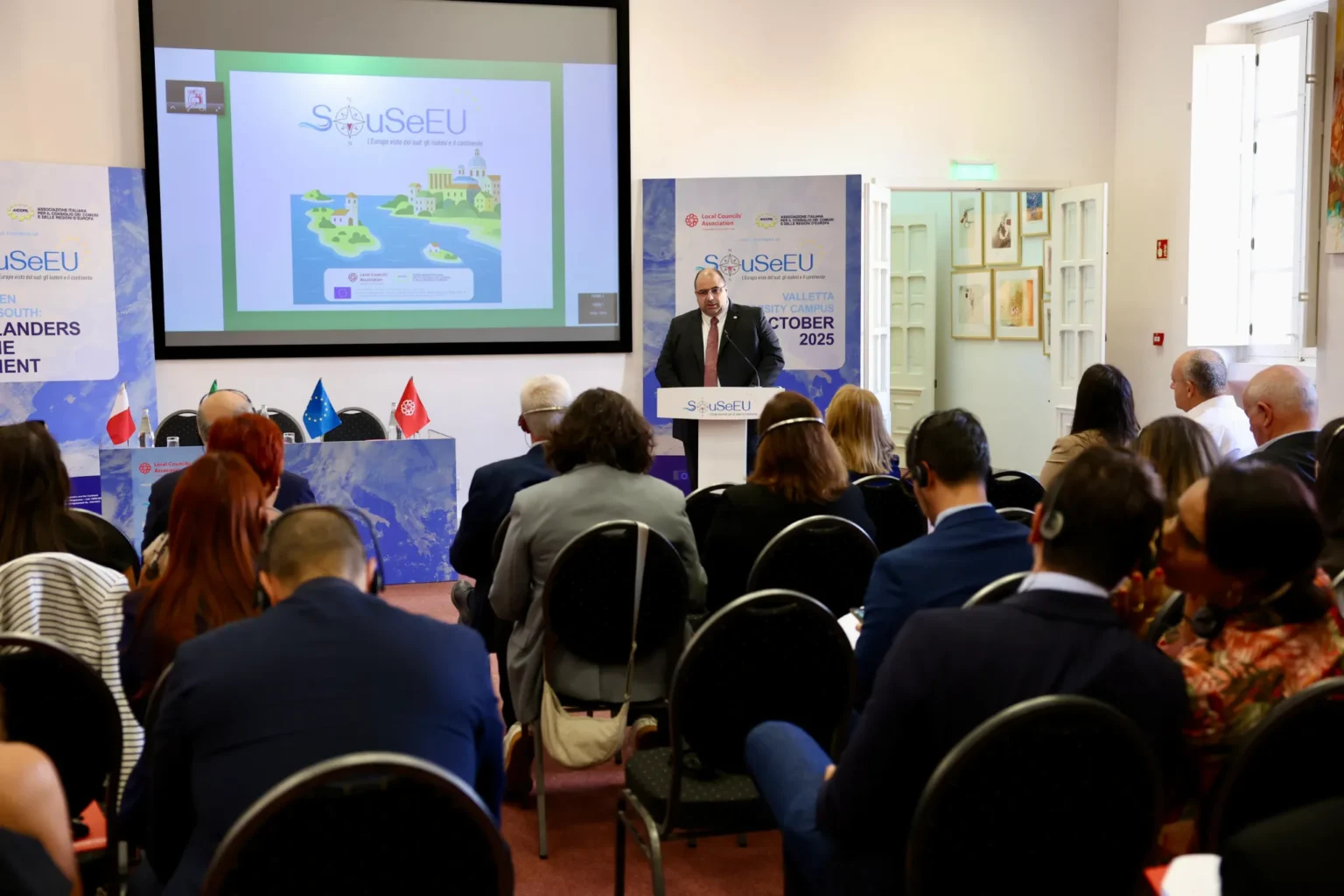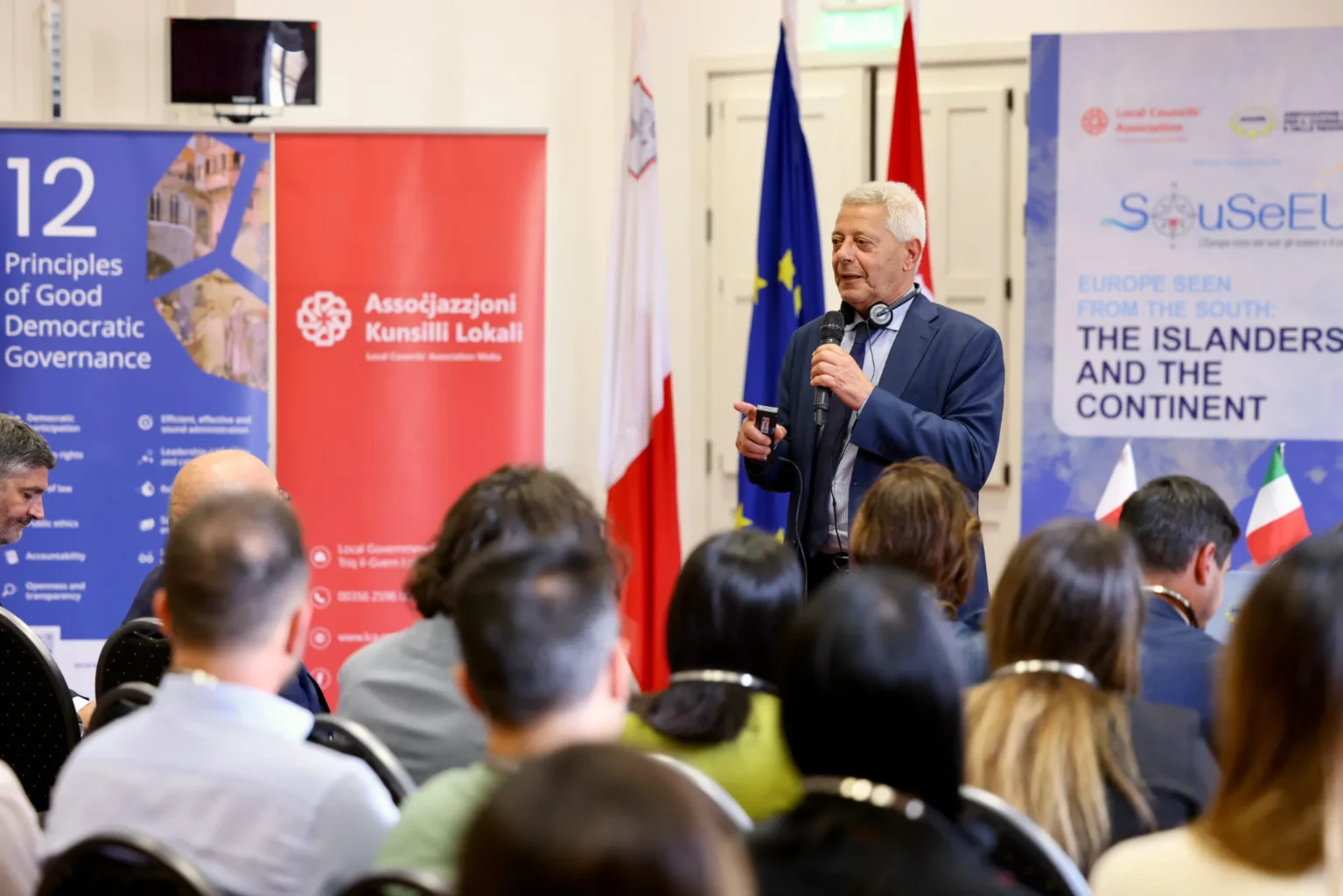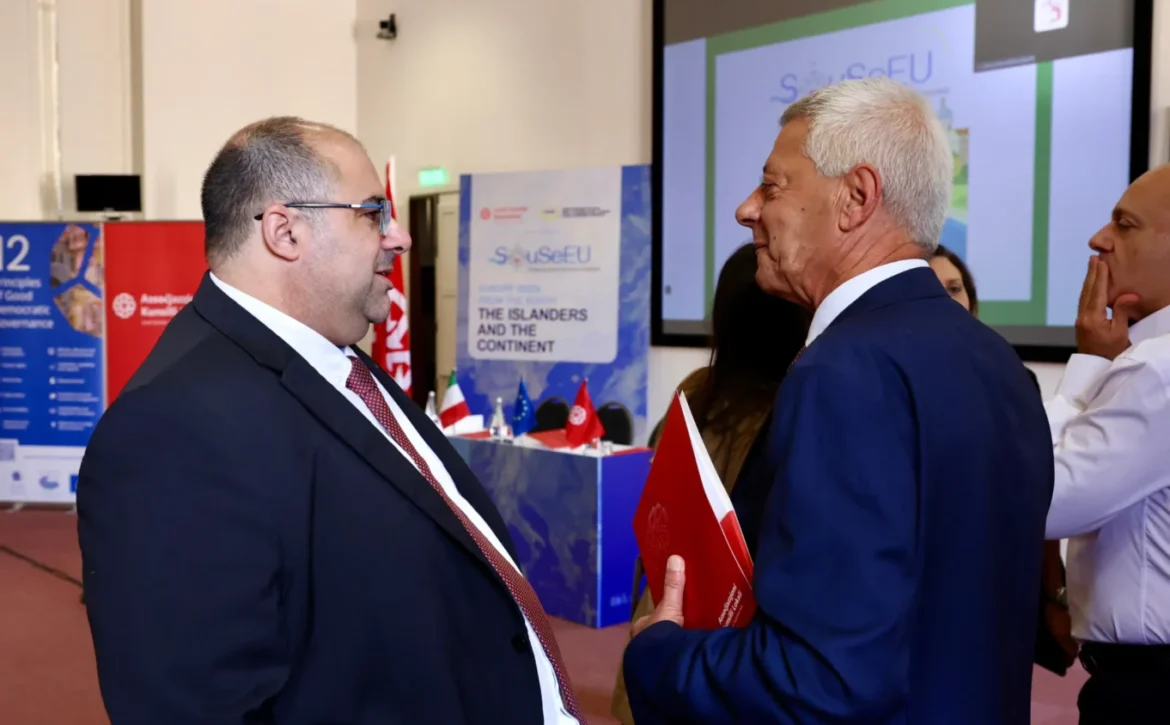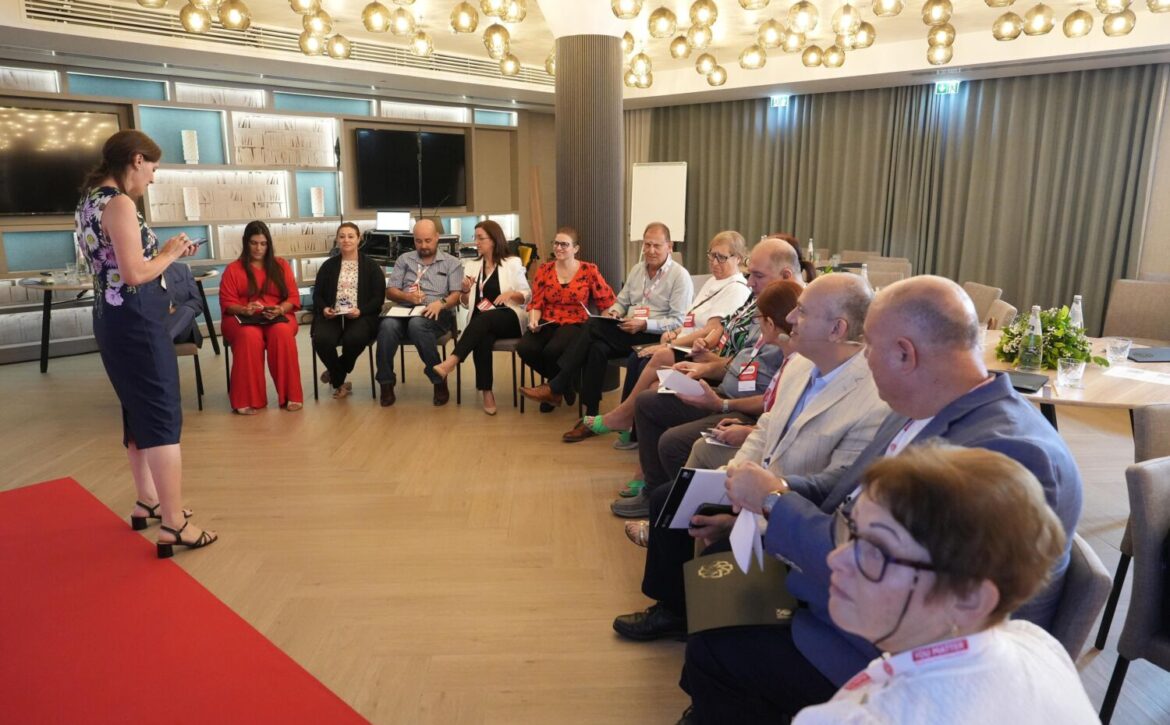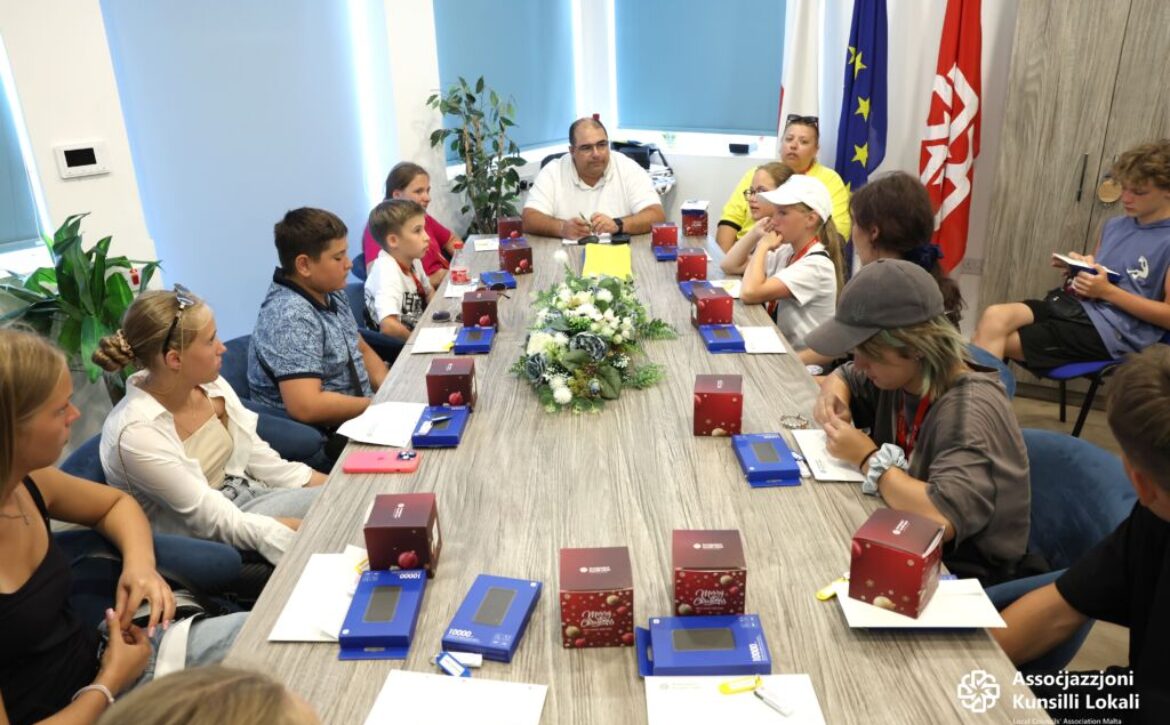The Association of Local Councils is currently conducting a series of training sessions, primarily for elected members, to equip them with the necessary tools to fulfill their responsibilities as mayors and councilors in the best way possible. This training is also targeted at executive secretaries and the employees of Local Councils. We do this because we believe that for a Local Council to function effectively, there must be full synergy between the elected members and the administrative team.
You Matter
This is a project that the Association launched a few months ago, providing elected members and employees with the opportunity to attend free sessions with professionals specializing in mental health. Through this initiative, anyone facing difficult moments that are affecting their lives can benefit from psychotherapy, psychiatry, and prevention services, helping them regain balance and well-being. This support aims to offer guidance and care, ensuring that those in need have access to the right tools to get back on track and thrive in their roles.
This project also includes a series of four seminars spread across the year, featuring interactive workshops. These sessions aim to raise awareness about the services available while fostering open discussions that encourage participants to recognize their potential. The seminars are designed to help individuals discover how they can apply their skills in everyday life to overcome challenges. By empowering attendees with knowledge and practical tools, the program seeks to build resilience and enable them to navigate obstacles more effectively, both in their personal and professional lives.
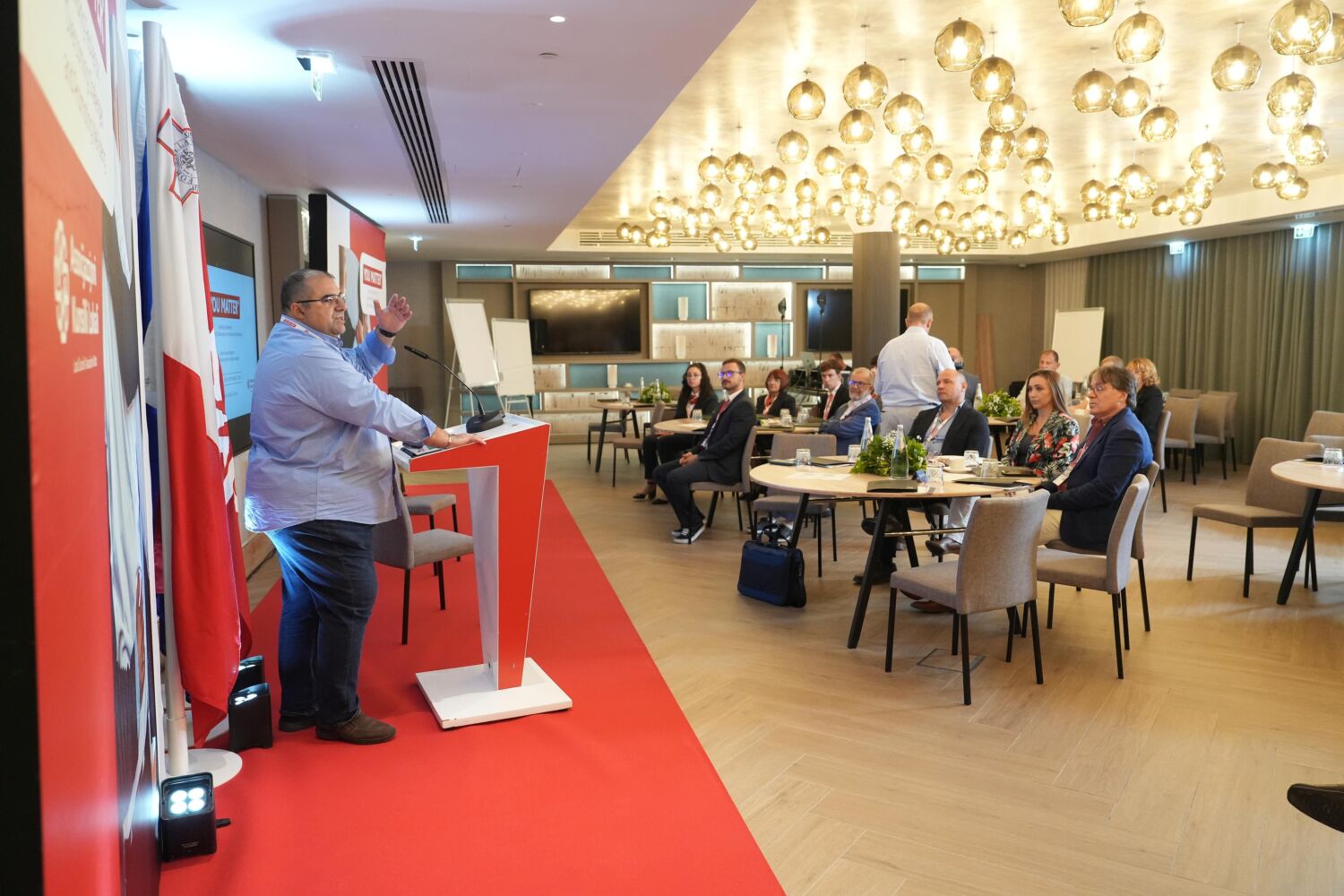
Karl Gouder
During the same event, the Association of Local Councils paid a fitting tribute to Karl Gouder, who throughout his life served as a councillor, mayor, and shadow minister for Local Councils in the Opposition. His parents were in attendance and watched a short video showcasing the various activities Karl participated in alongside the Association. In his memory, they were also presented with a commemorative photograph, a gesture to ensure that Karl’s legacy and contributions to the community are always remembered. The heartfelt tribute honoured his dedication to public service and left a lasting impression on those present.
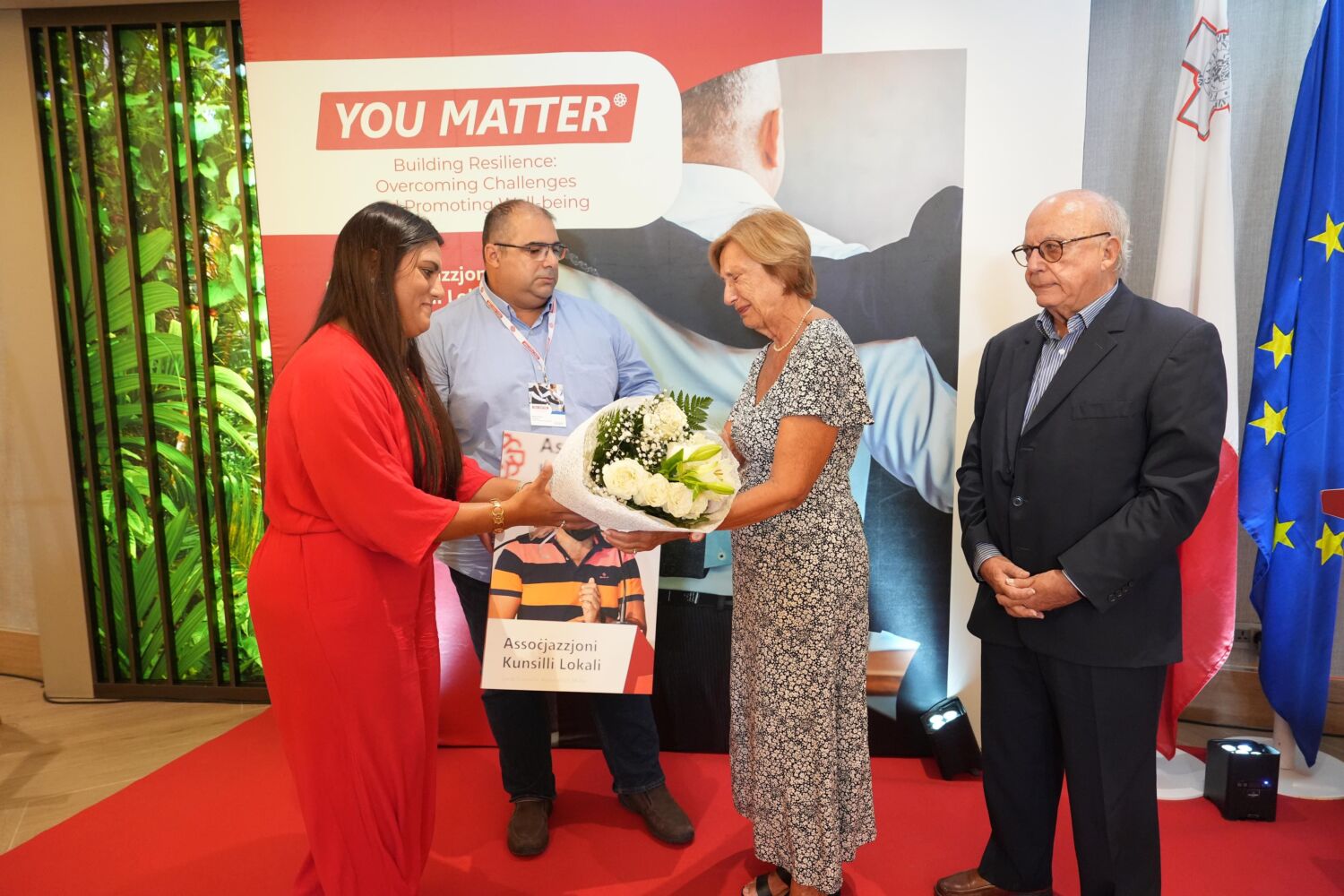
Financial Figures as a Leadership Tool
Spread across three sessions on September 26, 30, and October 3, training has been provided on how councillors or mayors can better understand the interpretation of Financial Statements (FS). FS are a very important tool as they allow the council to assess its financial standing and, based on this, approve new expenditures or projects. This also reaffirms the importance of having these FS prepared on time and, before approval, ensuring that all councillors fully understand the financial picture being presented up to that point.
Indeed, like any other organization, the Financial Statements must be prepared every three months. To ensure that the year-end Financial Statements are completed on time, it is essential that the quarterly statements are closed promptly. A council cannot find itself in June or July with the Financial Statements for January to March still awaiting approval. By that point, the council should already be positioned to begin finalizing the Financial Statements for the period of April to June. Timely preparation and approval are crucial for maintaining a clear financial picture and facilitating informed decision-making for future expenditures and projects.
In addition to all this, during the training sessions, participants had the opportunity to work hands-on with the Financial Statements of their respective councils. They were able to ask questions and discuss various topics. Among the subjects covered were the proper use of nominal accounts, what constitutes income and expenditure, and the importance of maintaining an updated Fixed Assets Registry. The discussion also emphasized the significance of budgeting and the need for regular checks every quarter to avoid ending the year with a deficit. Participants explored the difference between a deficit and accumulated debt, as well as the critical role of payment schedules, among other important topics. This interactive approach not only enhanced their understanding of financial management but also equipped them with practical skills to apply in their roles as councilors and mayors.
During the session on October 3rd, priority and importance were given to the ‘Business Plan’ (BP). The BP is a crucial tool that should be developed based on electoral manifestos—what has been promised to the residents—along with a clear plan outlining how and when these promises will be implemented. Naturally, it must also be aligned with the funds available to the Council, the allocated budget, and other potential funding opportunities the Council expects to receive.
This BP should be updated as necessary, though ideally, it would be drafted professionally from the start to avoid unnecessary changes later on. A well-prepared and structured plan ensures smooth execution and minimizes the need for revisions, thus facilitating more efficient management and resource allocation. The goal is to ensure that the Council’s commitments to the community are realized in a timely and financially sustainable manner.
Throughout the month of November, three additional important training courses will be organized, focusing on key skills for business operations. These courses will cover the use of the Sage accounting package, which is essential for efficient financial management; a course on Business English, aimed at improving professional communication and writing skills; and a course on WordPress, where participants will learn how to effectively use and update websites.
These training sessions are designed to enhance both technical and communication skills, ensuring participants are well-equipped to manage financial tasks, communicate more effectively in a business environment, and maintain a strong digital presence.

Well-being of the elderly in our communities
On October 11th, Mayors, Councillors responsible for elderly affairs, and Executive Secretaries were invited to attend an informational meeting about a community initiative that could greatly benefit our elderly population.
All Local Councils were offered a free program consisting of well-being sessions tailored for the elderly members of their communities. This program took a holistic approach to well-being, covering physical, mental, psychological, and social aspects, ensuring that our seniors receive comprehensive support to enhance their overall quality of life.
As our population continues to age, it is becoming increasingly vital to ensure that our elderly community remains engaged, healthy, and well-supported. We are proposing a pilot program that includes a three-hour “Wellbeing Taster Session” specifically designed for senior residents across various localities.
This initiative can become part of the activities that you, as the Councillor responsible for elderly affairs, can offer to your community. By implementing this program, you’ll be providing seniors with valuable opportunities to stay active, connected, and involved, contributing to their overall well-being.
There is robust scientific evidence demonstrating the importance of physical activity, cognitive engagement, and social health in reducing the incidence of chronic conditions among the elderly. For instance, a study published in The Lancet found that regular physical activity can reduce the risk of heart disease and stroke by up to 35%, and delay the onset of dementia and Alzheimer’s disease by approximately 30% (Lee et al., 2012).
Additionally, research from the Journal of Alzheimer’s Disease highlights that cognitive engagement and social interaction are strongly associated with a lower risk of developing Alzheimer’s and other forms of dementia (Wilson et al., 2013). These findings emphasize the need for holistic approaches to well-being, targeting both physical and mental health, to support healthier aging.
Moreover, when our elderly are more active and engaged, they can continue contributing to the community, whether through volunteering, mentoring, or simply by being active participants in local life. This initiative will ultimately foster a more inclusive, connected, and resilient environment, where all members—regardless of age—feel valued and supported. By encouraging active involvement, we can create a stronger sense of community and ensure that everyone has a meaningful role to play.
The Association sees great value in Local Councils, recognizing that they can act as catalysts to drive similar initiatives within the community. This will allow us to stay relevant to the evolving needs and changes we are witnessing in society.
With this in mind, an invitation will be extended to Councillors, where the program will be explained to them. This will empower them to offer something unique and meaningful to our elderly, who, after all, are an integral part of our communities. By engaging in this initiative, Councils can enhance the well-being of their senior residents and foster a stronger sense of community inclusivity.

Mario Fava
President
